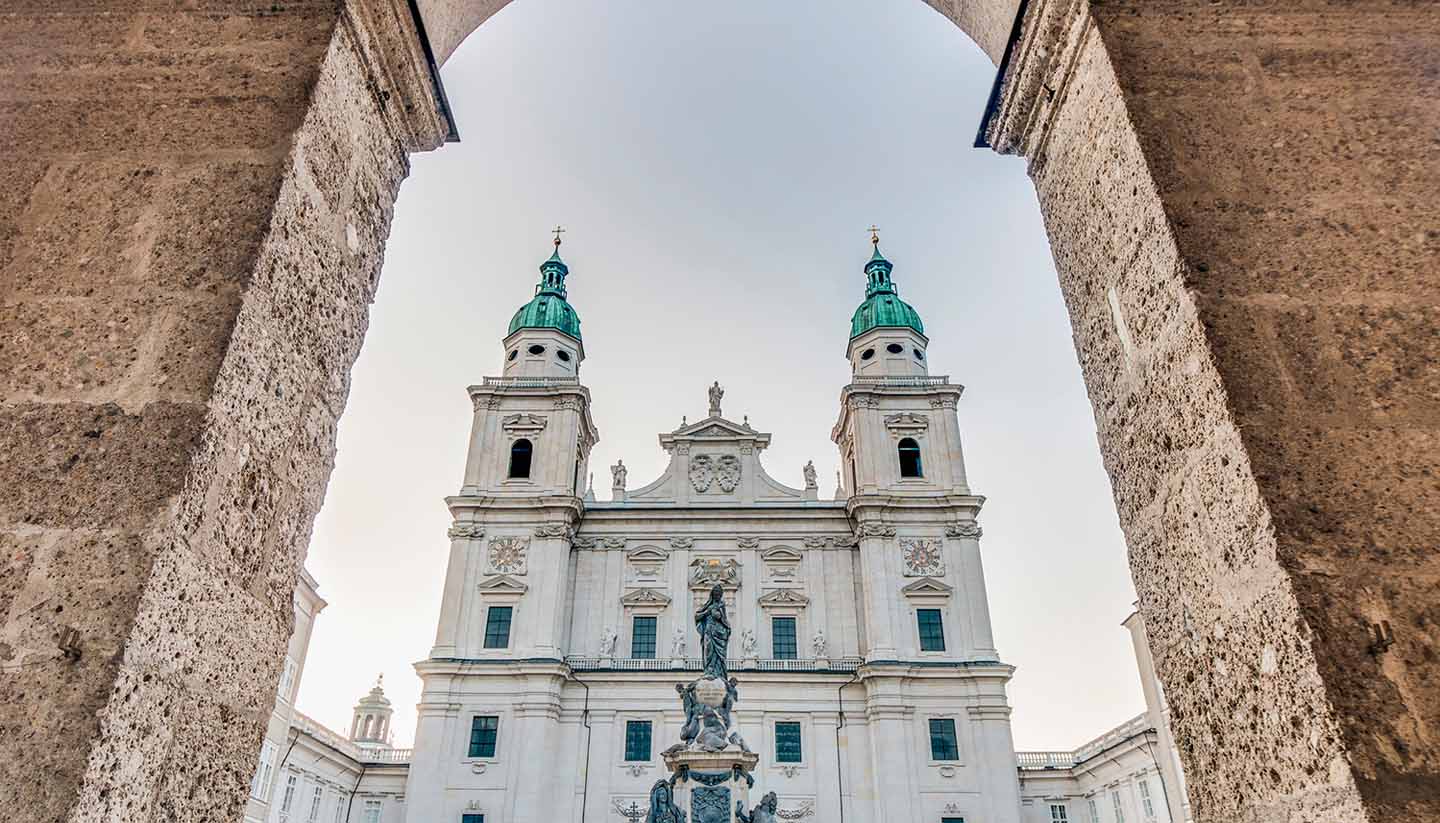Salzburg History
Although Salzburg has its early roots in the Stone Age, the establishment of the Roman town of Juvavum around 15 BC is its traditional beginning. By the fall of Rome, it was all but abandoned, but the city was saved from ruin by St Rupert, who was gifted the site at the end of the 7th century by the Duke of Bavaria. He became the city’s bishop and is remembered today as its patron saint.
Although the city began to grow thanks to St Rupert, it wasn’t until 1077 that work began on Salzburg’s fortress, which would turn out to be one of the biggest in Europe. It became the abode of the powerful archbishops of Salzburg.
Nearly a century later, the archbishop angered the German emperor Barbarossa so much that he destroyed much of the city. In the 14th century, Salzburg gained independence from Bavaria and became a prince-bishopric in the Holy Roman Empire, which then occupied most of central Europe. In 1492 the famous Stiegl brewery was founded, while in 1525 the peasants rioted and besieged the fortress for three months.
In the 16th century, Salzburg was greatly beautified, largely thanks to the vision of the city's most famous prince-archbishop, Wolf Dietrich von Raitenau. Using wealth procured through the salt trade, he built cobbled streets, narrow alleyways, elegant squares and churches, and in the 17th and 18th centuries, the Old Town of fabulous baroque architecture emerged.
During the Napoleonic Wars, the archbishops lost their power and Salzburg’s long independence, as the city became part of the Austrian Empire. Late in the 19th century, the city began to recover and modernise, although the Empire itself collapsed after WWI. In 1920, the iconic Salzburg Festival was founded, attracting intellectuals and elites from across Austria and Germany.
By WWII, Austria had been annexed to Nazi Germany and was often targeted during the war. In the post-war years, the city recovered fast, and was declared a UNESCO World Heritage site in 1997.
Did you know?
• Salzburg’s most famous denizen, Wolfgang Amadeus Mozart, was born here in 1756. The great musical genius is known to have hated his hometown, though.
• The history of Salzburg’s iconic St Peter’s Abbey can be traced back to the end of the 7th century, and the founding of Saint Rupert, although it was built on the site of a church dating back to Roman times.
• Salzburg’s wealth was established on the back of the salt trade, with the archbishops taking over production here in the Middle Ages, but salt mining in the area dates back to the Celts.


